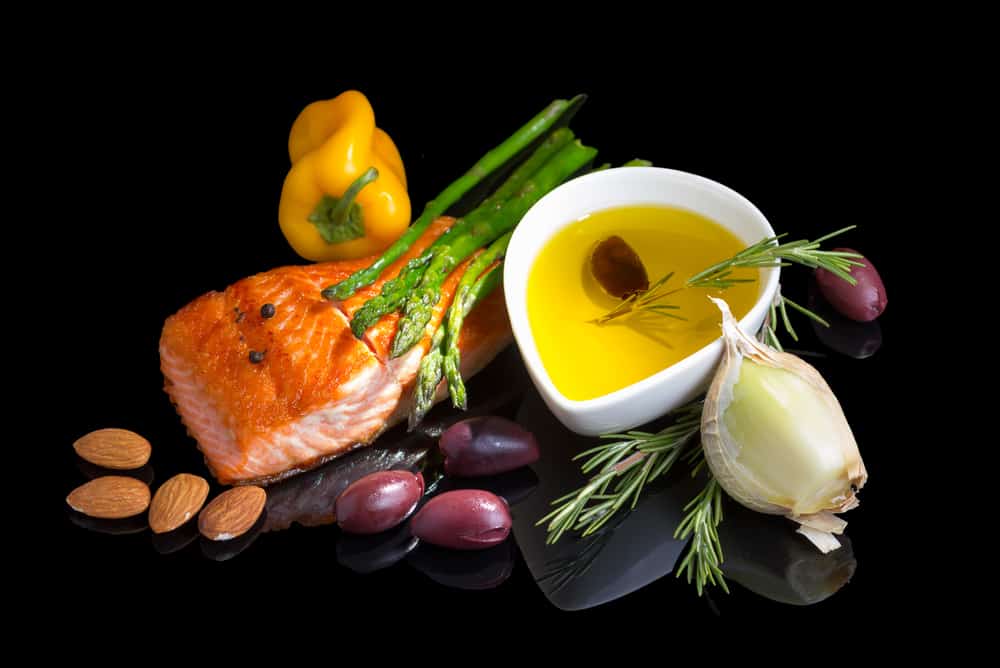Inflammation – What Causes It?
It seems there’s another buzzword doing the rounds in health and wellness circles – ‘inflammation’. Most people are aware of terms like anti-inflammatory diets and are familiar with OTC anti-inflammatory medicines.
But, how many of us truly understand what inflammation actually is? And more importantly, if we don’t know what it is how can we cure inflammation naturally?
In simple terms inflammation describes the way our body reacts to outside threats like toxic chemicals, infection, viruses, stress etc. When our immune system senses any of these dangers, then it starts to respond by activating the proteins which are supposed to protect tissues and cells.
Under the right circumstances, inflammation serves a useful and crucial purpose for your body. However, problems present themselves when the immune cells overreact. A damaging scenario arises because our once trusted friend, the immune system, turns against us and causes unimaginable harm to health.
This type of chronic and harmful inflammation might occur due to a large number of reasons including autoimmune diseases, bacterial or virus attack, the way we lead our life, stress, or poor diet choices including fast food, unhealthy fatty and sugary foods.
It is often difficult to know if you have inflammation as the first symptoms of chronic inflammation can be subtle and go undetected for quite some time.
Initial signs can be as simple as feeling more tired than usual. However, you may not have any outward signs or symptoms which allows inflammation to progress unnoticed. This worsening chronic inflammation causes underlying damage to your internal organs, arteries, blood vessels and joints.
When inflammation becomes chronic it contributes to many of the common diseases we are all familiar with. Alzheimer’s, heart disease, diabetes, and cancer among other conditions are all known to have inflammation at their root.

There are a few blood tests your doctor can use to check for inflammation.
- C-reactive protein (hs-CRP) test which is a marker of inflammation.
- Homocysteine levels to measure the presence of chronic inflammation.
- HbA1C which measures the blood sugar to ascertain any damage to red blood cells.
But Is Inflammation Really A Big Deal?
No, not normally. When inflammation occurs, the chemicals present in the white blood cells of your body are released directly into the bloodstream. This sudden release of chemicals causes an increase in the blood flow specifically to the region of infection or injury causing warmth or redness.
Some chemicals can cause a leakage of fluids; this results in swelling. Though it is a protective procedure to help your body, it can result in pain. However, this acute type of inflammation is a normal part of the body’s healing process.
Acute inflammation is the way your body responds to infections and injuries — for example, a broken bone or a cut. The swelling you see or heat you feel are examples of it.
This type of inflammation is one thing, it’s usually pretty short lived and you can recover from it with little to no lasting effects.
However, chronic inflammation is a whole other thing. When inflammation persists, an overactive immune system and dilated blood vessels become normal. This causes a problem because it isn’t a part of your body’s healing process or normal state.
Right now, everyone wants to know more about inflammation, and that is a good thing. Information regarding the impact of a problem enables us to deal with it before it is too late.
According to research, chronic inflammation is the cause behind chronic diseases like rheumatoid arthritis, asthma, Crohn’s disease, ulcerative colitis, and lupus. Several recent studies have placed inflammation as the root cause of clogged arteries, heart disease, cancer, stroke, and even gum disease.
Inflammation as a causal factor in so many chronic conditions is the reason there is currently so much interest in inflammation and how we can go about reducing it naturally.
8 Signs Of Chronic Inflammation:
- Fatigue
- Aches and pains – especially joint pain
- Depression
- Digestive problems
- Autoimmune conditions
- Resistant weight loss
- Skin problems
- Food sensitivity
5 Simple Lifestyle Changes To Reduce Inflammation
A few positive, but necessary changes in your lifestyle and eating habits will deal with the impact of chronic inflammation and can elevate your energy levels too.
By now you can see that regardless of being quite natural and something that is supposed to occur in our body, inflammation can pose disruptive threats to our health.
It is indeed true that an anti-inflammatory diet will have a massive impact on your health and it is crucial for long-term health. The importance of this diet will be discussed later but for now, we want to focus on the other factors that affect inflammation i.e. lifestyle behaviors.
#1. Manage The Stress In Your Life

Stress can wreak havoc on your health in its own way. When we experience chronic stress we set ourselves up for serious damage caused by inflammation.
It can mess with the body’s ability to fight inflammation and keep it under check. To explain simply, if you are stressed out all the time over matters of minor importance, then the chance of chronic diseases sooner or later affecting the quality of your life is high.
How we perceive and deal with stress is within our own control and there are many natural and simple ways to manage and reduce day to day stress.
It is a proven fact that stress is one of the leading causes of high levels of inflammation in the body. This, in turn, leads to chronic and disruptive health conditions.
Stress is your body’s physical response to the feeling of being threatened or challenged. And being stressed worsens already existing medical conditions.
Stress related illness includes neuro-degenerative diseases, cardiovascular disease, cancer, and depression. Research shows chronic inflammation is an essential component of stress related chronic diseases. What is conclusive from this study is the fact that stress needs to be addressed in order to reduce inflammation.
From yoga to meditation, walking, writing, drawing, gardening, or reading. Even something as simple as taking a few minutes for some deep breathing can prove beneficial in reducing the effects of inflammation.
Do something that will offer both your mind and body the care it needs. Self-care isn’t ‘selfish’. So, slow down, take a moment to realize when you are becoming stressed out and protect yourself from the effects of stress and inflammation.
#2. Get Quality Sleep Regularly
The inflammatory response of your body and sleep go hand in hand. Research shows that when we don’t sleep enough the inflammatory responses kick into a hyperactive mode and turn themselves against the healthy organs and tissues.

Missing a good night’s sleep on a consistent basis will result in an array of diseases like diabetes, hypertension, and heart disease. Make it a habit to tuck yourself in a little early every night and sleep without any disturbance for between 8 and 9 hours.
You must also try to ditch your screen time before you go to sleep. There is nothing more you can do to excite your senses and compromise on your quality sleep time. Switch off all screens for at least 3 hours before bedtime. Meditation before sleeping is a good way to relax and calm yourself down getting your system ready for a restful sleep. Check out some of these sleep aids that help calm your system and ensure a good night’s sleep.
#3. Move More
“I will start doing some exercise tomorrow”. ” Today, I’m not up for it, maybe tomorrow” – do these excuses sound way too familiar?
We all know how important exercise is to our overall well-being and now add fighting inflammation to its list of advantages. As little as 20 minutes of exercise each day can bring about positive changes and reduce inflammation in your body.
Exercise doesn’t have to be a cause of distress. It can truly be fun and something you look forward to every day. If the thought of exercising puts you off, think about it as ‘moving’ instead. It can be as simple as going for a long walk in the park or by the ocean.

Find an activity you will enjoy and can be easily incorporated into your daily routine. Just 15 – 20 minutes of daily walking can have a significant impact on your health and mind.
Some types of exercises like Tai Chi, Pilates, and Yoga can calm your body and mind. Lifting weights, dancing, swimming, or doing a yoga dvd at home, are just a few of ways you can get your blood pumping. The opportunities to simply move and be active are endless.
Don’t live in a nice area to go outside for a daily jog? Consider getting a treadmill to ensure you never miss your daily exercise. If you work at a desk for most of the day then consider getting one of these under-the-desk exercise machines. Staying active is the best cure for inflammation!
#4. Add Some Spice To Your Life
Several cultures around the globe historically place special significance on the power of herbs and spices for their beneficial effect on health. And, modern-day research shows they have been doing it right for centuries.

Herbs and spices have the power to act as a natural remedy against inflammation. Try using ginger, garlic, turmeric, and cinnamon in your food. They are easy to add to smoothies, stir fries, sauces and desserts. Not only will you be reaping benefits for your health but also adding beautiful flavor to your food.
You can also add some of these meta nutrients in supplement form ensuring you get their natural inflammatory qualities regularly if cooking just ain’t your thing.
#5. Eat Anti inflammatory Foods

Anti-inflammatory food is another important tool to use in preventing the chronic inflammation that leads to health problems. A diet that is designed to keep you healthy and free from pain will emphasize lean protein, fruits, vegetables, seeds, healthy fats, and nuts. Some of the top inflammatory foods to include regularly in your diet are:
Berries
Packed with minerals, fiber and vitamins, berries are an amazing choice when it comes to fruits. One of the best things about them is the variety of choice. From blackberries to strawberries, blueberries, boysenberries, cranberries and raspberries – you can have them all.
Anthocyanins are the antioxidants found in berries which provide the anti-inflammatory effect which crucial for your health. Being one of the lowest GI fruits they are a great option for those with blood sugar concerns too.
Fatty Fish
The best source of Omega 3 fatty acids – DHA and EPA. You also get a good amount of protein from them. The best choices here are – wild caught mackerel, salmon, sardines, anchovies, and herring. The Omega 3 fatty acids help to reduce inflammation levels which can cause heart disease, metabolic syndrome, kidney problems, and diabetes.
Broccoli
This vegetable is highly nutritious. In fact, all cruciferous vegetables – kale, brussel sprouts, cabbage and cauliflower are healthy. The antioxidants that these vegetables contain have beneficial anti-inflammatory effects.
Avocados
This is truly a superfood with unbeatable nutrition properties. Avocados are high in magnesium, fiber, monounsaturated fats, and potassium. The compounds present in avocados can not only fight the harmful impact of high levels of inflammation, but can also reduce the risk of cancer.
Peppers
High in vitamin C and antioxidants both chilli peppers and bell peppers have the potential to fight the many inflammatory symptoms. The ferulic and sinapic acid present in chilli peppers can reduce inflammation.
Mushrooms
There are an endless number of mushroom varieties with many being poisonous. However, a few are worth consuming for the health benefits they provide. The list includes shiitake, oyster, portobello mushrooms, and the uber expensive truffles. Low in calories they are high in Vitamin B, copper, and selenium. Mushrooms also contain a high amount of antioxidants and phenols which prove effective against inflammation.
Dark Chocolate And Cacao
Surprise, surprise!! Did you think something so satisfying, delicious, and rich would make the list? Packed with antioxidants dark chocolate is an amazing way to keep inflammation at bay. It also reduces the risk of other diseases and keeps you younger, healthier, and of course happier.
However, due to the inclusion of sugar in commercial chocolate only small portions should be eaten. Perhaps a healthier option is to use raw organic cacao in your sugar free desserts and smoothies. You’ll skip the sugar, but still get the inflammation fighting goodness.
Extra Virgin Olive Oil
High in monounsaturated fat, this oil is an integral part of every Mediterranean style diet. It works as an anti-inflammatory compound to reduce the high levels of inflammation in your body. Super easy to incorporate into your regular diet, simply drizzle it over a healthy salad each day.
While On The Subject Of Food – Foods To Avoid
Adding these beneficial foods to your diet is an easy way to reduce inflammation. But, you also need to cut out inflammatory foods if you want to really start seeing and feeling the benefits.
Margarine, refined vegetable oils, standard meat, and dairy products like ice cream, butter, cheese, milk, are not beneficial to health and are proven to increase inflammation. Stay far away from white bread, refined grains, sugary drinks, refined carbohydrates, fast food, processed snacks, and desserts. When you do your grocery shop stick to the outside aisles where the fresh food is located and keep away from the center aisles containing canned, processed and frozen foods.
Putting It All Together
Regular moderate exercise, sound sleep, managing stress in healthy ways, and good food are the keys to leading an anti-inflammatory lifestyle. They are known ways you can cure inflammation naturally.
As well as decreasing your risk of contracting an inflammatory disease you will reap some immediate benefits including:
- Higher energy levels.
- Reduction in symptoms of existing inflammatory conditions e.g., Arthritis, lupus, inflammatory bowel conditions, and chronic fatigue syndrome.
- Improvement in numbers for triglycerides, cholesterol, and blood sugar levels.
- Improvement in mood and general outlook.
Don’t overlook the impact inflammation has on your overall health and well-being. Make these easy and doable lifestyle changes happen. Start with a list of the changes you can make. Work on making the easiest changes first. Slowly but surely add more changes into your life as you become more comfortable.
As you progress adding more of the changes your health and well-being will improve, leading to the ease with which you can keep adding more. Take steps today to cure inflammation naturally and protect yourself from disease. Try this inflammation busting supplement with 29 times more body absorbing power than regular curcumin supplements.
As Always, Please Feel Free To Leave A Comment.



